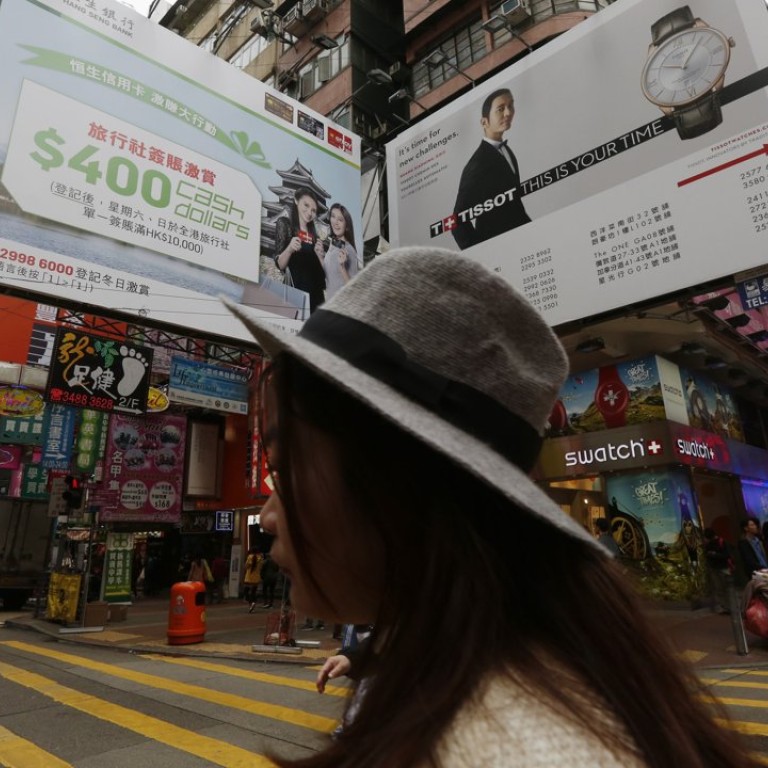
Letters to the editor, January 14, 2016
Start-ups need government support
That doesn’t surprise me. As an entrepreneur, I don’t expect government handouts. At the same time, I believe some attention is better than none. Nonetheless, I found four important startup DNA characteristics missing in the policy plan for “Asia’s world city”.
● Lack of a global mindset: Apart from the mainland market, a lot of start-ups want to go global and scale up. However, other than the government’s beating the drum for entering the mainland market, little real support or policies for start-ups’ internationalisation are mentioned in the address.
● Lack of diversity: In Hong Kong, the composition of members of different advisory committees or panels related to start-up policies lacks diversity in age, gender and race, which makes the city continue to lag behind the world pace. After all, the pecking order according to experience and seniority does not work in start-ups.
● Disconnection between research and commercialisation: The Hong Kong government has been putting more and more resources into research and development in universities and research centres. However, we have never seen a successfully commercialised research project or a “billion-dollar start-up”. Without commercialisation, research can’t have an impact on society.
● Local products are not preferred: The government should use the products it promotes. If it does not back local products, how can others believe and give high marks to products made in Hong Kong? In fact, some products developed by local start-ups are quite mature and have strong customer bases already.
Overall, the policy address was supposed to be an indicator which sets the direction of the government’s policies on start-ups and entrepreneurship. However, we have only seen empty words instead of substantial measures on supporting start-ups.
If the government really wants to contribute to the start-up ecosystem in Hong Kong and create positive impact, it should cut red tape in addition to those high-level strategies. For example, paperless submission and documentation should be promoted, unnecessary procedures should be simplified, and approval time should be shortened.
Time and manpower are crucial to start-ups. I think every government should put itself in the shoes of start-up founders before claiming to foster the start-up ecosystem in its economy. Otherwise, only hindrance rather than help will be the result.
Ping Wong, CEO of Evention, and director and convener of the start-up working group of Internet Society Hong Kong
Pressure on students ignored
Only two months ago, there was a public outcry when people found out that Secretary for Education Eddie Ng Hak-kim missed a public hearing on the controversial issue of the Territory-wide System Assessment (TSA) because he went vacationing in Japan. So while I am happy to see that the government is passionate in implementing free kindergarten education and nurturing students, it is still doing little to solve the problem of the high learning pressure in Hong Kong.
I was shocked when I once saw a cram school advertisement of a crying child with the words “competition will arrive one day”. I strongly agree with Germany’s idea of banning cram schools for pre-kindergarten education, commonly referred to as play groups. Hong Kong should follow Germany’s lead.
The government must stop excessive drilling for TSA tests, and try harder to allow children a proper childhood. Also, it must do more to reverse the trend of commercialisation of education.
Anfield Tam, Quarry Bay
Elderly get a boost from policy address
I’m all for Leung Chun-ying’s policy address, as it covered the urgent needs of the people, especially the elderly .
US President Obama shows his leadership in an adamant effort to promote gun control, picking a fight with Congress and lawmakers that were motivated by selfish protection of arms suppliers’ interests, to the detriment of precious human lives.
Now the chief executive of Hong Kong has done likewise to curtail the vulnerability of senior citizens.
Peter Wei, Kwun Tong
Xi Jinping should sue in Hong Kong
So we seem to have publishers and lawyers disappearing, as if by magic, in Hong Kong and the mainland. I cannot help but think that the two issues are inextricably bound, and that if it were not for the one, the other would not be either.
Could it be due to a lack of available competent professional legal advice on the mainland that the “authorities” there have taken the political choice to spirit away the Hong Kong publishers and thus create the tension so obvious currently?
I would like to suggest that Mr Xi Jinping ( 習近平 ) gets himself a Hong Kong lawyer to represent him in Hong Kong, to sue for libel these publishers who wish (allegedly) to publish a book about his alleged “relationships”. What an incredibly strong manifestation of China’s commitment to “one country, two systems” that would be!
If he were to adopt this wiser route, Hong Kong could handle the issue legally. It would no doubt be hard for the publishers in Hong Kong to provide testimony from these alleged former ladies, as they could presumably simply “disappear” if necessary.
Dr Jon Fearon-Jones, Macau
Copyright fix will hinder creativity
I believe the proposed amendment to Hong Kong’s copyright laws will seriously hold back our efforts to develop creativity. I understand the law is meant to protect the rights of the original creators of artistic works. But I disagree that spoofs and parodies based on those works will harm the original creators. In fact, such derivative works are a great promotion for the original work.
Hong Kong people like to use spoofs and parodies to express their discontent towards the government. I urge the government to consider the different factors before taking any decision, as such a platform is necessary to Hongkongers.
Yuen Tsz Shan, Yuen Long

